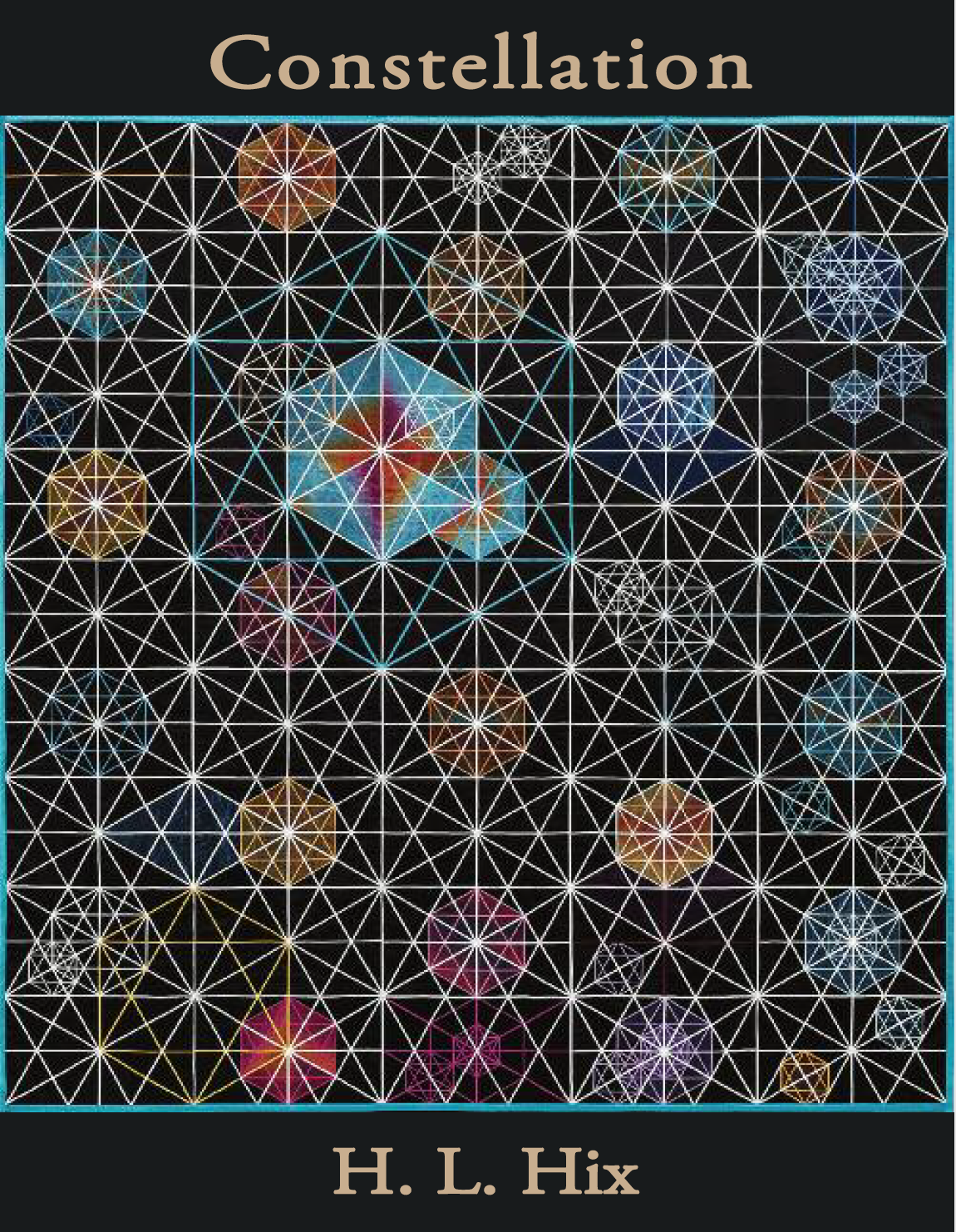
Constellation
A brilliant and beautiful book, a poem constructed so tightly, so seamlessly, that an atmosphere of linguistic tension and bracing resonance suffuses every line. This is Hix’s poem of a lifetime—and it carries me back to “A poem must not mean but be.” Constellation is not just a poem—it’s an event born of capaciousness, impeccable craftsmanship and euphony, allusion, echo, intimacy, as well as humor, and, of course, the keen, essential consciousness that lies behind every choice. Along with its surprise and compassion, it transports the reader to a different, an acute, plane of attention. Hix, philosopher, scholar, translator, and poet has given us a work of immersive mind, matter, and transcendence—a radiant and masterful poem that leaves me breathless with admiration.
— Renée Ashley, author of The View from the Body
View on:
Cloudbank Books
Amazon
A conversation:
with Jesse nathan
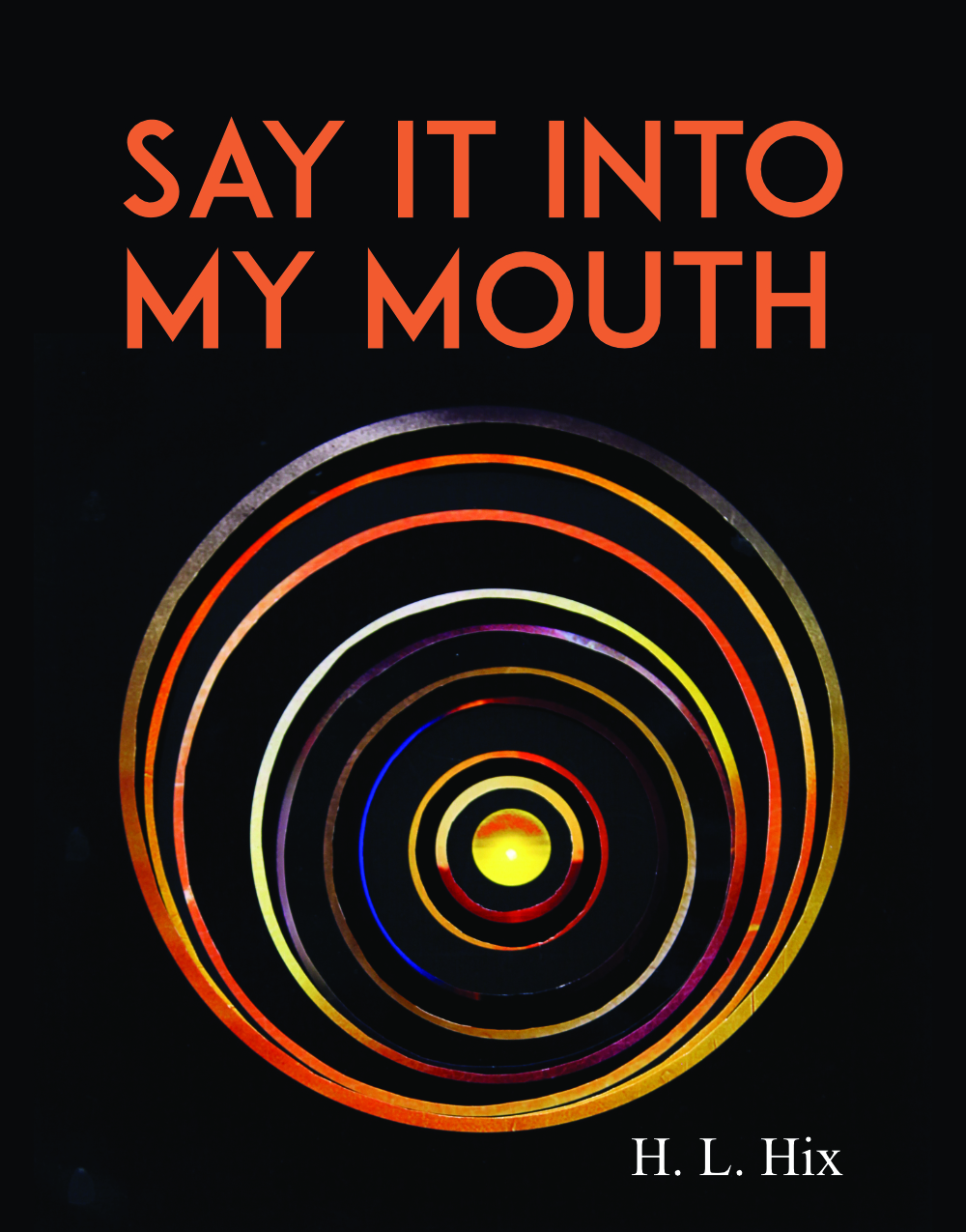
SAY IT INTO MY MOUTH
“It matters what we quote and how we quote it.” What makes H. L. Hix’s book unique is that its set of very personal, indeed autobiographical poems turn out, paradoxically enough, to be composed almost entirely of quoted text. How does a poet perform this feat? Hix has “selected and arranged all the material, but invented none of it.” The key is selection: in Duchamp’s words about his famous urinal, “he chose it.” Whether working with corresponding (or are they antithetical?) citations from Wittgenstein and Leslie Scalapino, or with Heracleitus vis-à-vis a bevy of contemporary poets and philosophers, Hix Makes It New by asking questions, not “of one’s own,” but “as one’s own.” Every aphorism or question provokes a further question or response, often familiar on its own, but transformed by its context. The resulting lyric conceptualism or conceptualist lyric — take your pick! — is as thought-provoking as it original and charming.
— Marjorie Perloff
View on:
Blazevox books
Amazon
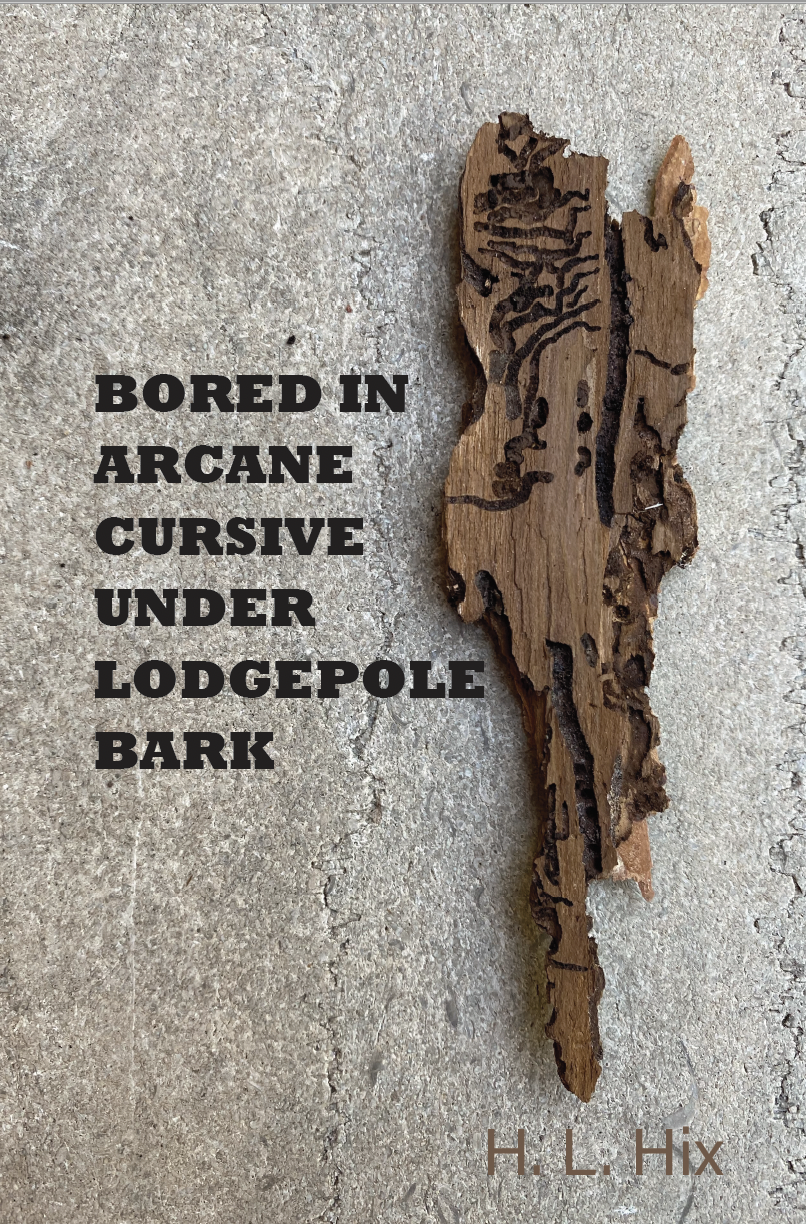
BORED IN ARCANE CURSIVE UNDER LODGEPOLE BARK
H. L. Hix demonstrates a Thoreauvian burrowing of the mind—a burrowing of fifty poems—into fifty “seed sentences” from fifty “soil texts” from natural history. The poems burrow, too, into common yet rarified encounters with “the carcass of an elk,” or the sun which “contains all direction,” or the “breathing of Breathing” of a “fresh-brushed red-brown ribcage-rounded coat” of a horse. We readers are invited to burrow along with Hix, not unlike “generations of a beetle species” who can “migrate / deeper into a cave than any individual / could travel to get out.” The exploration yields glimpses of the mystic part and the elusive, mythic whole as well as a profound and sobering reflection of the human experience upon planet Earth.
— Aaron M. Moe, author of exhalations
View on:
MIDDLE CREEK PUBLISHING
Amazon
A reView:
California review of books
A conversation:
with Dante di stefano
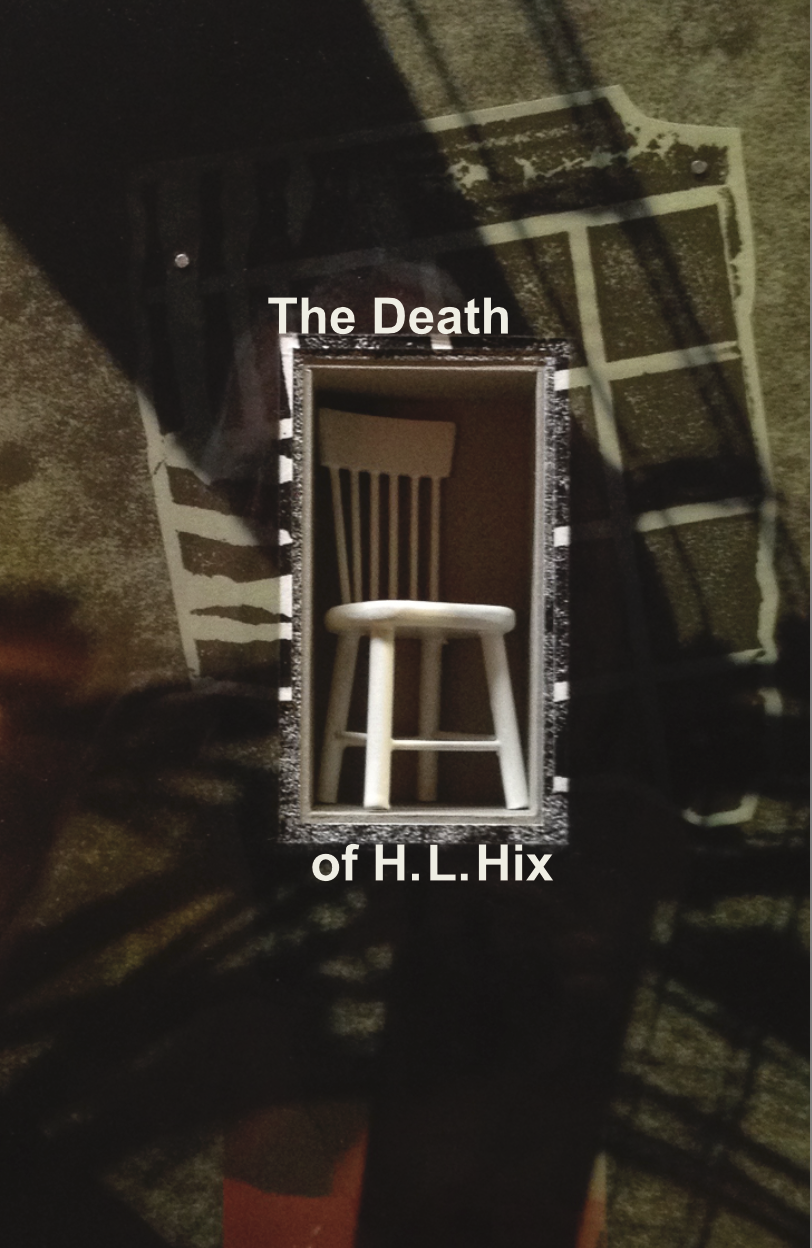
The Death of H. L. Hix
With his debut novel, The Death of H. L. Hix, the poet, essayist, critic, and philosopher H. L. Hix—not to be confused with the titular H. L. Hix, deceased—makes a brilliant and, thankfully, pre-mortem entrance into the world of fiction. Look beyond the campus satire that sets this story into motion, beyond the comedy of errors that leads to H. L. Hix’s demise; look past the exquisitely and deliciously detailed ordinariness of H. L. Hix’s origins and everyman ways; pay little attention to the fact that H. L. Hix’s corpse resides in Wyoming, or that it’s as American a cadaver as was Louis L’Amour’s, and you will discover beating at the center of this literary post-mortem the afterlife of a Russian soul, very likely reincarnated from a philologist that breathed mostly irony. I’m tempted to call H. L. Hix Count Lev of Laramie. I’m tempted to say after reading this gem of a novel, “The Death of Ivan who?” Hix’s The Death of H. L. Hix is such a joy to read—so cleverly constructed, so gorgeously written, so sharp and wry, amusing and insightful—it deserves to be read and reread and passed around from reader to reader until the paper on which it is printed dissolves into thin air.
— David Grand, author of Mount Terminus
View on:
Bookshop.org
Amazon
Barnes and Noble
A reView:
International Times
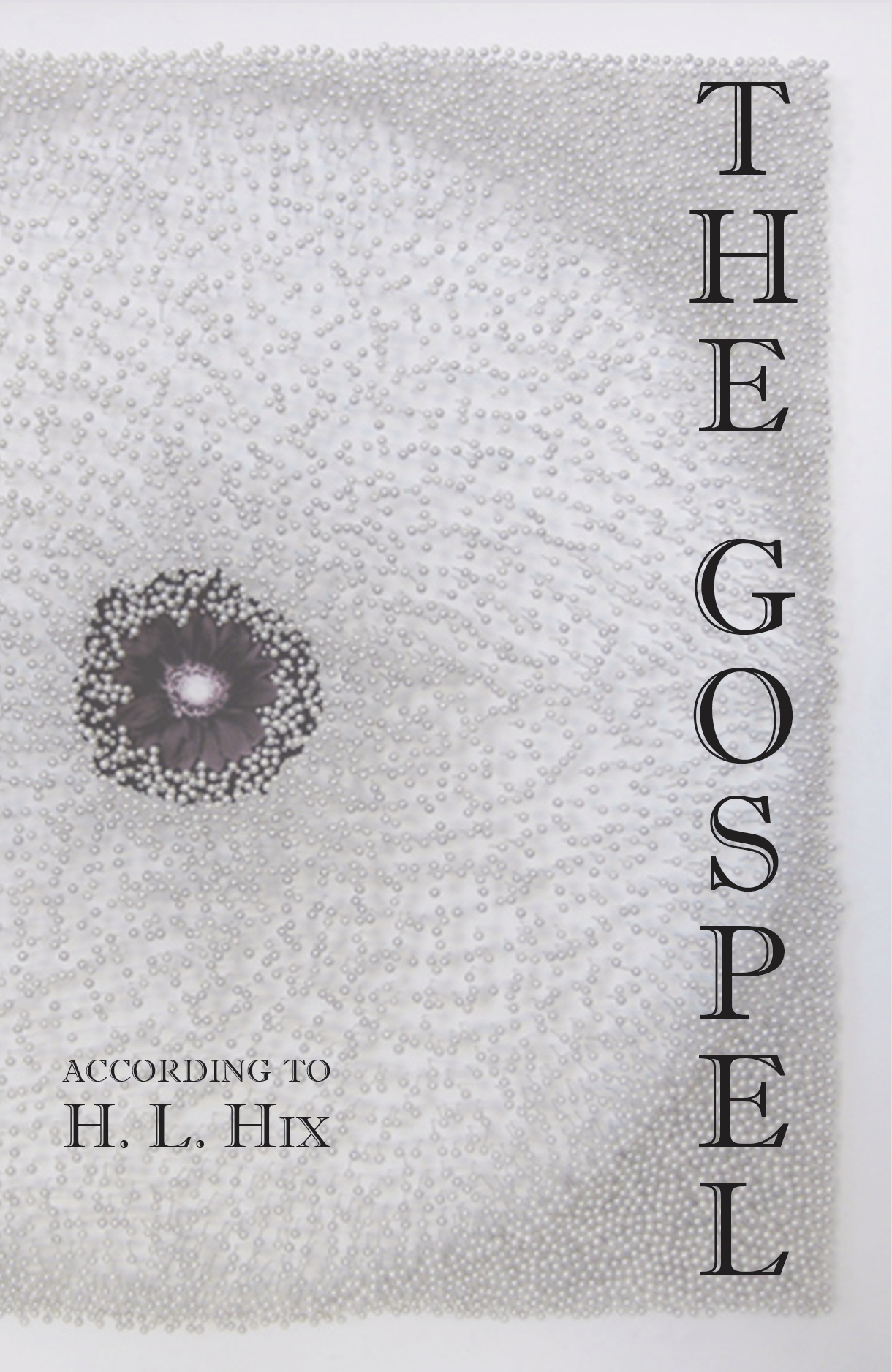
The Gospel
If God and Jesus were not masculine, if stories the church suppressed were given equal time with those it claims, if a new translation listened more to our English than to King James’s, the gospel would be a whole new story. In The Gospel it is.
The Gospel tells a story of Jesus that for 2,000 years history has hidden away. It is not a novelization, but instead is composed exclusively of ancient Greek, Latin, Coptic, and Syriac texts, selected, arranged, and newly translated. The Gospel is the good news like it always was, and like you’ve never seen it before.
Joy Williams, author of Ninety-Nine Stories of God, says: “Slangy, familiar, yet freshly strange, all embracing, challenging, reverently irreverent, H. L. Hix’s The Gospel is a faithfully non-canonical narrative of the life and teachings of Jesus. The Story lives. The Dance never ends. Fear not. Amen.”
View on:
Bookshop.org
Amazon
At a Discount from broadstone books
Some reViews:
World Literature today
The Christian Century
Christian feminism today
california review of books
Ann Anderson Evans Blog
Some video and Audio conversations:
with loren richmond jr
with larry moore
with katerina stoykova
with Paul John Roach
Some conversations:
with Ian Ross Singleton
with Dante di stefano
with geoffrey gatza
with katie nolan
with rupert loydell
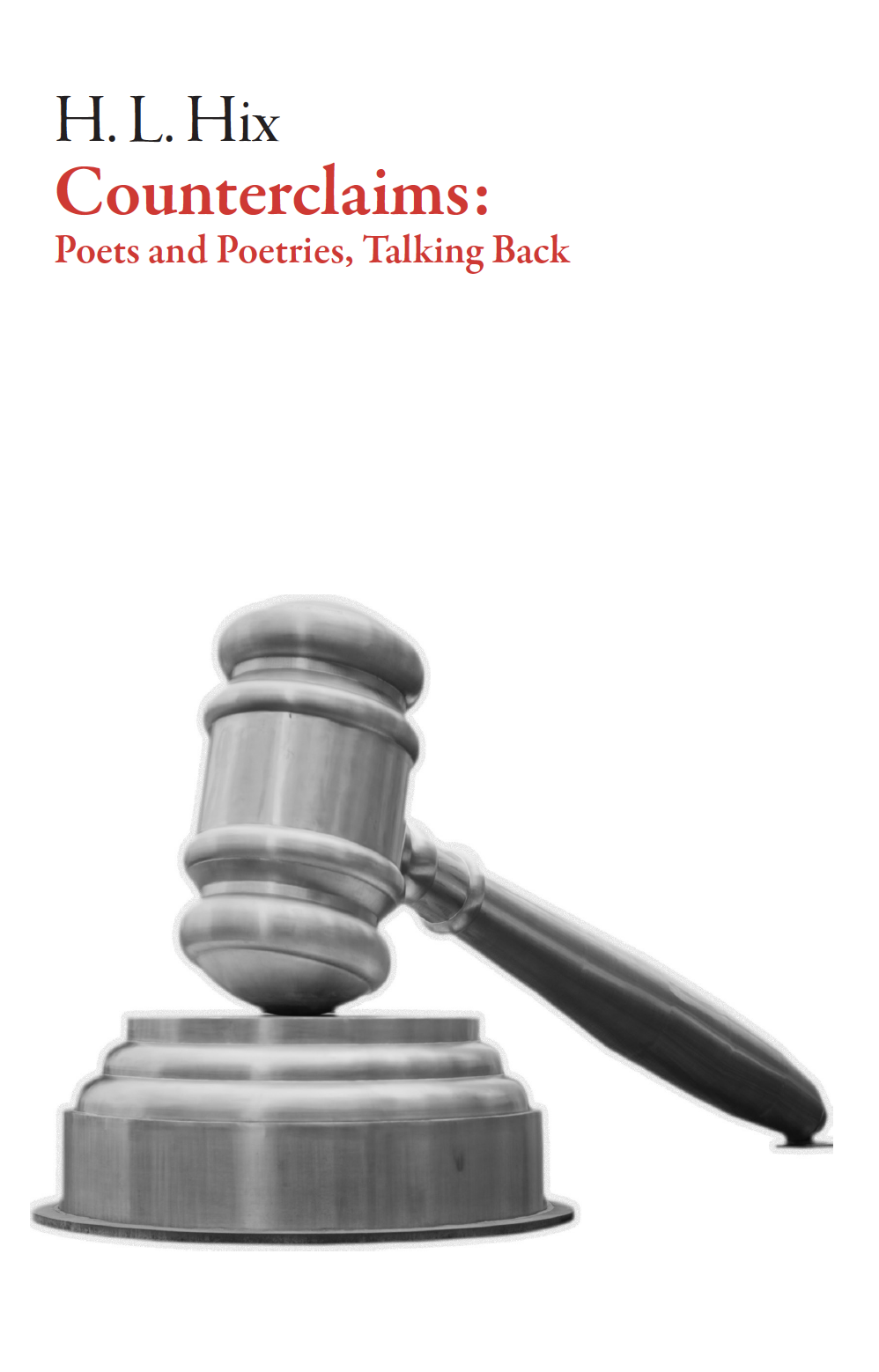
COUNTERCLAIMS
“Poetry makes nothing happen.” “To write poetry after Auschwitz is barbaric.” Incessantly repeated, typically taken as truisms. But are they true? In this unique and timely anthology, H. L. Hix invites more than 150 contemporary poets and scholars to counter those claims.
The familiar pronouncements from Auden and Adorno are, after all, a full human lifespan old, made at particular historical moments, in particular cultural contexts, and from particular subject positions. Contributors to Counterclaims were asked “What must or might be said now about poetry?” Their incisive answers sum to a broad and luminous vision of poetry: what it does, what it is, what it might be, what it shows us about ourselves.
View on:
Bookshop.org
Amazon
Powell’s
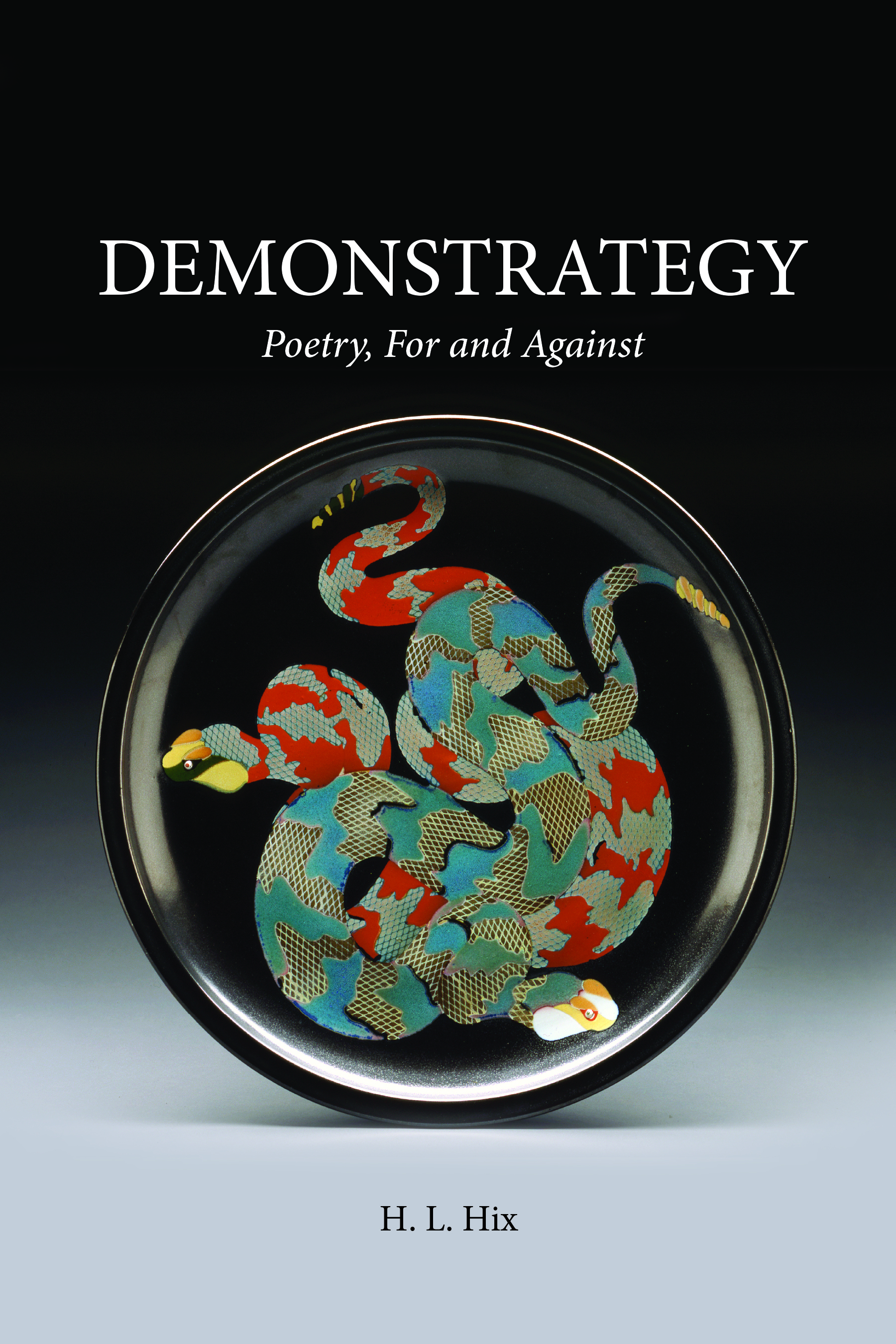
DEMONSTRATEGY
“Poetry is not dying for want of an audience,” H. L. Hix boldly opens his meditation on the why and wherefore of poetry, Demonstrategy, but rather, “humanity is dying for want of poetry.” His argument for the necessity of poetry, its “ethopoesis,” as Hix theorizes, is a capacious inquiry into what comprises a poetry adequate to our cultural need. Chapters focus forcefully on matters both urgent and cerebral (poetry against patriarchy and tyranny, poetry for reparation and dissent). Drawing on a wealth of ancient and modern thinkers about language and poetry (ranging from Herakleitos to the astonishing Jan Zwicky) to investigate various aspects of the field, Hix builds a brilliant case for poetry’s cause. Like T. S. Eliot’s Tradition, which alters with the publication of the new (the really new) work of artistic genius, the set of great philosophical defenses of poetry must now move over and make room for H. L. Hix’s scorching-smart Demonstrategy.
— Cynthia Hogue, author of In June the Labyrinth
View on:
Amazon


